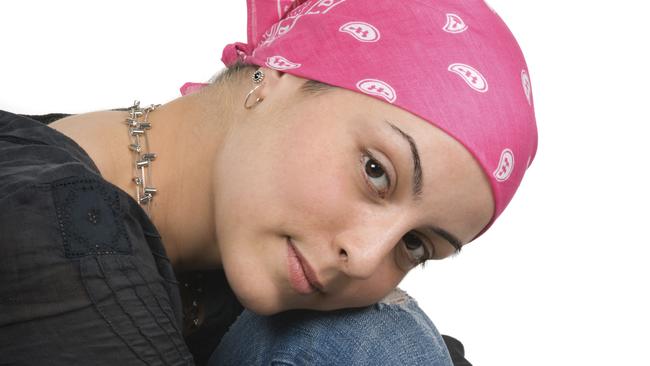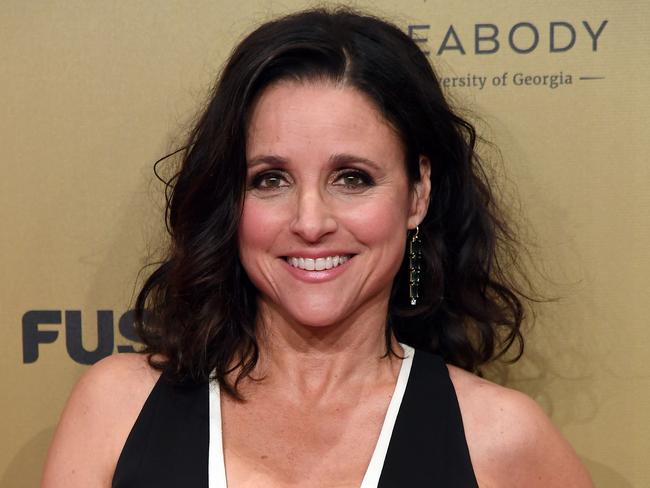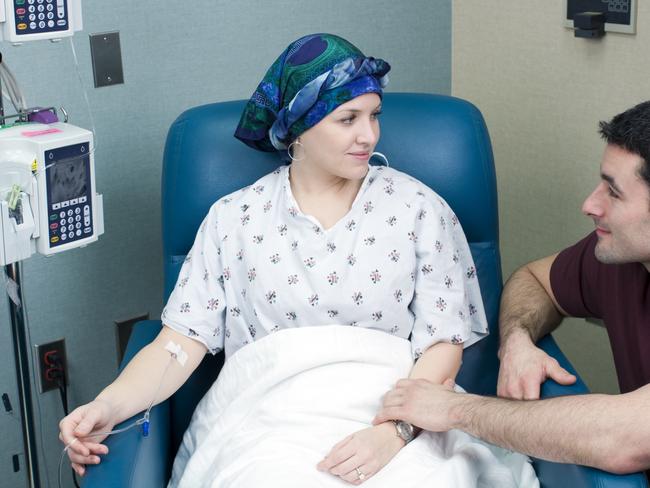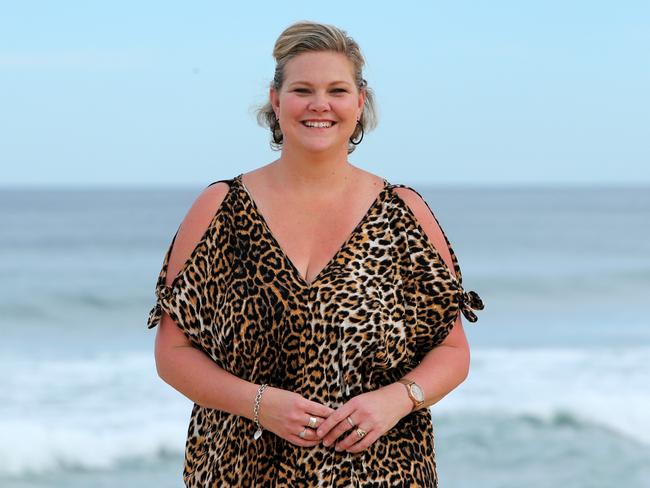Mastectomies could be a thing of the past for breast cancer patients
REVOLUTIONARY new ways to treat breast cancer could reduce the number of treatments women need in order to beat the disease.

EXCLUSIVE
Mastectomies could be replaced by chemotherapy and hormone treatment under a revolution in breast cancer treatment being trialled in Australia.
Under the trial 123 women are being given chemotherapy, aromatase inhibitors and hormone therapy to shrink their tumours before surgery.
This means women would need a less invasive lumpectomy to treat their cancer rather than a mastectomy followed by breast reconstruction.
The new treatment is being tested by Breast Cancer Trials, a group of Australian doctors and researchers committed to improving breast cancer treatment.
RELATED: Julia Louis-Dreyfus reveals breast cancer diagnosis

Other changes they are pioneering could see women receive less treatment and still beat their cancer.
Women with small, hormone receptor positive slow growing cancers will go without the standard radiotherapy treatment after surgery to see if it affects their cancer outcome.
Another trial will examine whether it is necessary to remove all the lymph nodes when only a small amount of cancer has spread.
“Most cancer trials are about adding extra treatments but there is other research that is hard to do and it is about asking is it okay to give less treatment, maybe not everyone needs it,” says Professor Nicholas Wilcken, chair of Breast Cancer Trials.

Currently all women who have a lumpectomy to treat breast cancer are routinely given five weeks radiotherapy.
The trials underpinning this treatment protocol were done decades ago and since then new drugs like tamoxifen that block the effects of oestrogen in breast tissue and aromatase inhibitors have been added to treatment.
Doctors want to know if the costly five week radiotherapy is still necessary and will test this by denying radiotherapy to some women in the trial.
Breast cancer can spread through the body if it moves into the lymph nodes and surgery to remove the nodes causes stiffness, swelling and pain in the arm.
This is why in a separate trial doctors will test whether small amounts of cancer will actually spread if the lymph nodes are not removed now there are new chemical ways of controlling cancer.
In another trial expensive new treatment palbociclib currently used in late stage cancer is being tested in early stage cancer to see if it delays the return of breast cancer under another project.

HOW MELISSA IRVING AVOIDED A MASTECTOMY

Melissa Irving was aged just 39 when she found a lump in her left breast and was due to have a mastectomy.
Instead, the Shelly Beach mother of two was offered a chance to take part in the ELIMINATE clinical trial.
Instead of a mastectomy her surgery was delayed and she was given 16 rounds of chemotherapy, the aromatase inhibitor letrozole and oestrogen suppressor goserelin.
The treatment shrank her tumour so much she was able to preserve her breast and have a lumpectomy to beat the cancer.
The mother of two girls said she found it exciting to be part of a trial that might change the future of breast cancer treatment.
“The fact I’ve got two girls, I wanted to be part of something for future generations, to be proactive about changing people’s lives,” she said.
BREAST CANCER PATIENTS FACING MASSIVE COSTS
The Medicare rebates for breast cancer scans have not increased for over 19 years and sick women are facing thousands of dollars in out of pocket expenses when they can least afford it.
Bulk billing rates are below 45 per cent for some scans and follow up MRIs for breast cancer are not even covered by Medicare at all leaving breast cancer patients with an annual bill of up to $1000.
A News Corp investigation has uncovered that a typical patient can face average out of pocket expenses ranging between $3000 and over $5000 just for scans related to their cancer.
News Corp revealed last week that Medicare and private insurers are failing women with breast cancer who have to raid their superannuation and rely on charity to fund out of pocket expenses of up to $234,000.
Women need up to eight types of scans throughout their breast cancer treatment but Medicare rebates are stuck at 1998 levels.
Only 56 per cent of diagnostic mammograms are bulk billed and women are left with an average out of pocket expense of $85.
A breast ultrasound has an average out of pocket cost of $85 and only 63 per cent are bulk billed.
An ultrasound guided biopsy will leave women with a gap fee of $85 and only 45 per cent are bulk billed.
Many women need an annual breast MRI to check if their cancer has returned and each of these has out of pocket costs of between $600 and $1,000 because Medicare doesn’t cover them at all.

“For people with incurable breast cancer, they may be having scans for the rest of their lives. These out-of-pocket costs have a big financial impact, and the fact that the Medicare rebate has not kept up with the cost of treatment is unacceptable,” said Danielle Spence, Director of Policy & Advocacy at Breast Cancer Network Australia.
The government announced in the May budget it would index the Medicare rebate for mammograms and breast ultrasounds but not until 2020.
Even then the rebate rise will be paltry, just an additional $1.15 per patient for a diagnostic mammogram, while a breast ultrasound and an ultrasound guided biopsy received an additional $1.40 per patient.
A government committee has been looking at providing a Medicare rebate of breast MRIs but in 2016 recommended just two out of six categories of breast cancer patient should be funded for MRI.
It reckoned 10,000 patients would benefit but a bureaucratic bungle means since then, only 112 patients have qualified for a Medicare funded MRI when over 14,000 women are diagnosed with breast cancer each year.
The committee will now take another year to reassess whether a Medicare rebate should apply.
WHAT WOMEN WITH BREAST CANCER PAY FOR SCANS
| Diagnostic mammogram | $85 average gap |
| Ultrasound | $85 gap for one breast, $94 gap for two breasts |
| Ultrasound-guided biopsy | $85 |
| Diagnostic mammogram (follow-up) | $85 |
| X-ray | not routine but if required $100 gap |
| MRI (for evaluation and treatment planning) | $600-$1000 |
| Nuclear medicine breast imaging | $183 gap |
| PET/CT for staging | No rebate, but fees can be up to $800 |
| Nuclear Medcine bone scan | $150 gap, estimate |
| CT scan of chest or abdomen | $150 |



